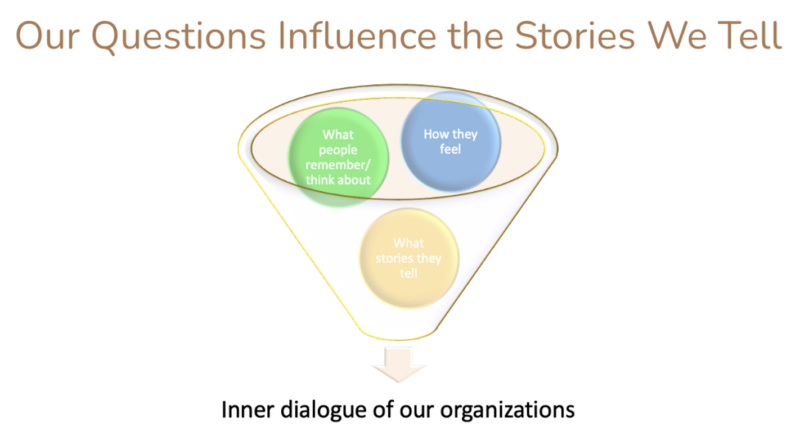 Katherine (Kit) Brown-Hoekstra, Comgenesis
Katherine (Kit) Brown-Hoekstra, Comgenesis
October 1, 2024
The topic of leadership is both broad and deep. For the purposes of this post (and the upcoming Leadership Toolbox course), I use the term in the broadest, most holistic sense, where you have an opportunity to lead in any situation where you interact with others and have influence, even if you lack a title proclaiming you as a leader. With this definition in mind, let’s talk about one of the most important areas where you can have influence—in the questions that you ask.
Most of us got into this profession because we are insatiably curious and love to write about what we learn. Asking questions is a huge part of how we get the information that we need to do our jobs. We communicate with everyone across the organization as we work, often resulting in us having a broader perspective on the project and the organization than most of our coworkers. Yet, our training (particularly for those of us who are editors) encourages us to focus on problems and analyze what’s wrong, rather than on strengths, solutions, and possibilities.
The good news is that we can learn to reframe our questions into something more generative and effective. This approach is called Appreciative Inquiry, an open source, change management methodology that focuses on the best of what is, what was, and what could be. It’s not about ignoring problems. Instead, this method focuses on the questions we ask and identifying more generative possibilities. When done well, it’s a powerful technique for moving beyond just fixing what’s broken to encouraging a culture of innovation.
British Airways (BA) is perhaps one of the most famous examples of this. A few years ago, they were having issues with losing baggage and hired a consultant to help them fix it. This consultant was trained in Appreciative Inquiry, and worked with BA to reframe their question from “How do we fix our lost baggage problem?” to “How might we create an exceptional arrival experience?” The first question focused on the problem and would have gotten them to a neutral state. By focusing on the second question, they not only solved the lost baggage issue, they began winning industry awards for their customer service. Why? Because asking the question differently allowed BA to think differently about the situation and devise better solutions.

David Cooperrider, the founder of Appreciative Inquiry, once said, “We live in a world our questions create.” By reframing our questions, we can change our world. Interestingly, the change starts even before we find the answers to the questions. You can see this in your own life and habits. For example, if I tell myself, “I only have 30 minutes to do X”, I am far less likely to start on the task. If, on the other hand, I ask myself, “How much can I do on X in the 30 minutes I have?”, I’m much more likely to start. I only changed a few words, yet it made a powerful mental shift, resulting in greater productivity.
In A More Beautiful Question, Warren Berger gives multiple examples of how shifting the question can completely change the outcome for the better. The questions we ask lead us in different directions and can lead to radically different outcomes.
As leaders, we need to be thoughtful in the questions we ask and reframe our questions into ones that help our teams generate more innovative, creative solutions to our business challenges. So, what questions will you reframe today?
If you want to learn more, there is still room in the Leadership Toolbox course, starting 14 October 2024, though space is filling rapidly. We would love to see you there!
